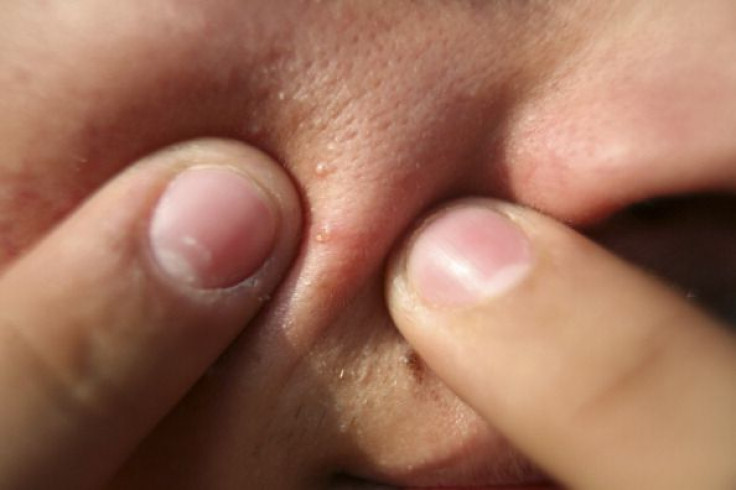What Are Hormones? Facts And Myths That You Should Know

Hormones are the chemical messengers in the body that are created in the endocrine glands and secreted directly into the blood stream to tissues or organs. Hormones affect different processes of the body that include growth and development, metabolism, sexual function and reproduction and also emotions and mood.
Hormonal imbalance that happen as a result of exposure to toxins, an unbalanced lifestyle or thyroid issues or diabetes, can lead to serious health disorders.
Major Endocrine Glands
- Hypothalamus: The main gland acted on by the hormone is Anterior pituitary. The hypothalamus is responsible for body temperature, hunger, moods and the release of hormones from other glands. It also controls thirst, sleep and sex drive.
- Parathyroid: Controls the amount of calcium in the body. It is mostly linked to the kidney and bone cells.
- Thymus: This gland plays a role in the function of the adaptive immune system and the maturity of the thymus, and produces T-cells.
- Pancreas: This gland produces the insulin that helps control blood sugar levels.
- Thyroid: This produces hormones associated with calorie burning and heart rate.
- Adrenal: These glands produce the hormones that control sex drive and cortisol, the stress hormone.
- Pituitary: Considered the "master control gland," the pituitary gland controls other glands and makes the hormones that trigger growth.
- Pineal: This gland produces serotonin derivatives of melatonin, which affects sleep. These are also called the thalamus.
- Ovaries: Only in women, the ovaries secrete estrogen, testosterone and progesterone, the female sex hormones.
- Testes: Only in men, the testes produce the male sex hormone, testosterone, and produce sperm.
Symptoms Of Hormonal Imbalances
- Infertility and irregular periods
- Unexplained weight gain or weight loss
- Depression and anxiety
- Fatigue
- Insomnia
- Low libido
- Changes in appetite
- Digestive issues
- Hair loss and hair thinning
Common Hormonal Imbalance Problems
- Estrogen dominance (Symptoms: changes in sleep patterns, weight and appetite, an increase in stress levels, a slowed metabolism)
- Low estrogen (Symptoms: low sex drive, reproductive problems, menstrual irregularity, changes in mood)
- Hypothyroidism (Symptoms: slowed metabolism, weight gain, fatigue, anxiety, irritability, digestive issues, irregular periods)
- Low testosterone (Symptoms: erectile dysfunction, muscle loss, weight gain, fatigue, mood-related problems)
- Hyperthyroidism (Symptoms: anxiety, thinning hair, weight loss, trouble sleeping, irregular heartbeats)
- Diabetes (Symptoms: weight gain, nerve damage (neuropathy), higher risk of vision loss, fatigue, trouble breathing, dry mouth, skin problems)
- Adrenal fatigue (Symptoms: fatigue, muscle aches and pains, anxiety and depression, trouble sleeping, brain fog, reproductive problems)
Cause of Hormonal Problems
Hormonal imbalances may be a result of several factors including, poor stomach conditions and food allergies, obesity, inflammation as a result of poor diet, increase in toxicity levels that are caused due to exposure to pesticides, toxins, viruses, cigarettes, excessive alcohol, and harmful chemicals, and excessive amounts of stress.
Interesting Facts About Hormones
- While trouble in sleeping may be a symptom for hormonal problems, researchers believe that one week of camping, without electronics, can help the body synchronizes melatonin hormones with sunrise and sunset.
- Estrogen, which is a natural hormone circulating in significant amounts through the bodies of half the world’s population, is in National Institute of Environmental Health Sciences' list of known cancer-causing agents.
- More sunlight exposure for a man can likely elevate testosterone levels as there is a positive correlation between vitamin D and testosterone levels.
- Physical wounds can be healed faster through cuddling and other love acts as it releases Oxytocin, which is proven to reduce swelling.
- Vitamin D is the only vitamin that is also a hormone. Its deficiency can lead to numerous mental illnesses such as depression and Schizophrenia.
Myths About Hormones
- A woman no longer produces any estrogen or progesterone during menopause because she is no longer releasing any eggs: But the truth is that women do not ever stop making sex hormones but levels drop during menopause naturally.
- Estrogen causes breast cancer: Estrogen does not cause breast cancer and its supplementation after menopause might have a protective effect, according to a report.
- It's easy to diagnose and treat thyroid disease: Thyroid disease is a very complex and multi-faceted condition that requires a variety of approaches to diagnose and treat.



























